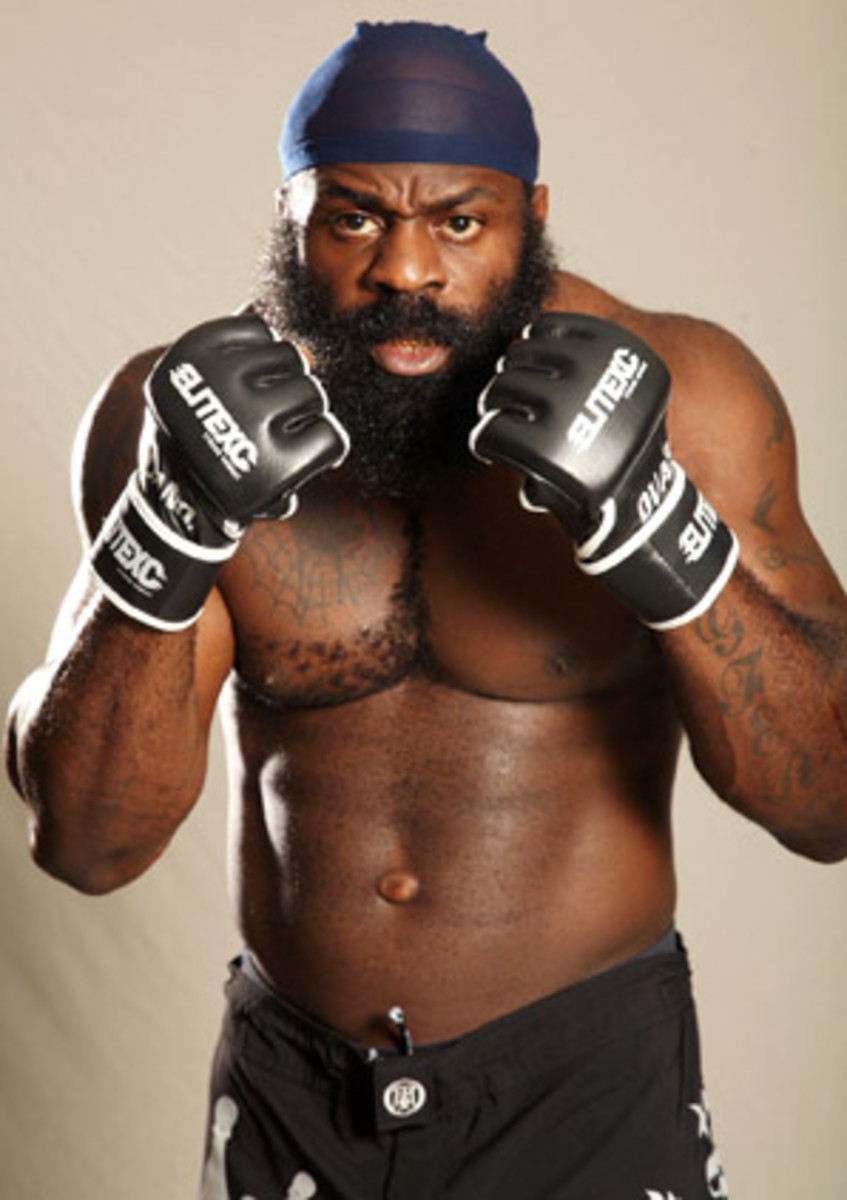Kimbo Slice: Pro, scapegoat or hype job?
Either he's the worst thing to happen to the sport of mixed martial arts, or he's the next big superstar.
He's the ratings draw that MMA desperately needs, or he's a wild animal, who will come to your house and eat your children. It's a discourse of extremes, and it isn't helping us understand what's really happening. The criticism of Slice (aka Kevin Ferguson) comes from all directions, and for different reasons. Some is legitimate and some isn't.
"He's an Internet sensation, who beat up guys at Taco Bell," former UFC champ Chuck Liddell said. "Come on. How hard is that to do?"
ESPN's LZ Granderson likened the image Slice has built for himself to be "a cross between Lil' Wayne and Kunta Kinte -- a runaway slave with a mouth full of gold teeth, playing up every single stereotype of an African-American male in exchange for short-lived adoration from a soulless media with ADD."
Different motivations, but the same message: Kimbo is bad -- bad for the sport, bad for his race, bad for the impressionable youth who see him on TV. It's a simple enough way of looking at things, even if it isn't completely fair.
A certain amount of backlash is to be expected. Slice has attained a type of fame that would not have been possible 10 years ago. Only in the age of viral video could beating up nightclub bouncers in backyard brawls be considered a path to national celebrity. But as uncomfortable and unsavory as those videos may be, is it fair to use them to define Slice as he pursues a career as a serious professional?
It's not a simple question. Slice's current persona is largely based on his past. Without those videos, without the notoriety the came with them, it's unlikely that he would be fighting on EliteXC's live event on CBS on May 31, much less making six figures to do it.
But it's not as if he's preparing for that fight by brawling in the streets and drinking malt liquor with Internet pornographers. By all accounts, Slice is a dedicated professional these days. He trains at Bas Rutten's Thousand Oaks gym alongside other fighters from all the major organizations. Rutten describes him as a model student, as do most of the trainers he's worked with.
"I don't see anything that he does wrong for these people to talk about him like this," Rutten said. "Is it just because of the way he dresses that they call him a thug? If he dressed however they told him to dress, just to make people happy, that seems more like a slave to me. More people know him than know some other fighters, and some guys don't like that, but that's not his fault."
Whether or not it's not his fault, it is part of what's fueling the anti-Kimbo sentiment. What makes Slice's career as an MMA fighter so novel is that he was famous before he ever stepped in the cage. Many people had already made up their minds about him, as well as about whether he would be a help or a hindrance in MMA's ongoing struggle for mainstream acceptance.
Instead of working his way up the ranks the way any other fighter would have, Slice was fast-tracked for success because of his drawing power. He fought a series of high-profile fights against opponents with losing records. He spent no more than a few minutes in the cage. And yet the hype would have us believe that he's already arrived.
This is Slice's problem. It's not so much about who he is or what he's done, but how he's being marketed. Slice is not a main-event fighter. Not yet, anyway. But Elite XC didn't even blink when they tapped him to fight James Thompson (who's coming off two straight KO losses) as the headlining bout for their biggest event yet.
That tells us exactly what Elite XC's motivations are. They want to capitalize on the Kimbo craze before it dies down. They want to exploit his fame for ratings instead of letting him establish himself the old-fashioned way. They don't care that he may not be main-event caliber yet. Not as long as the ratings are good. Meanwhile, a proven veteran, like Robbie Lawler, fights for a title on the same show and hardly gets mentioned.
It's not so much a question of whether Slice deserves all the criticism he's getting, but rather how he deals with it. If he keeps winning fights and eventually faces more credible competition, he'll silence most of the critics.
Those who don't like how he dresses or talks or wears his beard will probably always be waiting in the wings to take a cheap shot, but such are the devils of fame. The notoriety that got him to this point is now an albatross around his neck, and the only way to get rid of it is by proving himself like a regular fighter.
Let's just hope the all-powerful hype machine EliteXC will give him that opportunity, and quickly.





